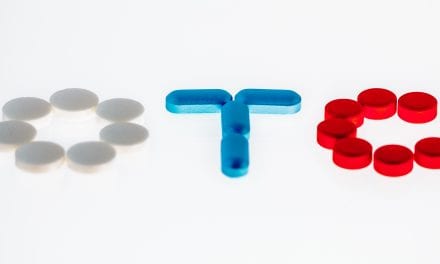Updated August 10, 2017
The US Senate passed HR 2430, the Food and Drug Administration (FDA) Reauthorization Act of 2017, by a vote of 94-1 on August 3. The bill was previously passed by the US House of Representatives on July 12, and presented to President Trump on August 7 for his signature, the final step before it can become a law.
The FDA Reauthorization Act amends the Federal Food, Drug, and Cosmetic Act to extend and revise the user-fee programs through Fiscal Year 2022 for medical devices, generic as well as prescription drugs, and biosimilar biological products. Also included in the bill is the Over-the-Counter (OTC) Hearing Aid Act—introduced in March by Senators Elizabeth Warren (D-Mass) and Chuck Grassley (R-Iowa)—which will require the FDA to develop regulations for OTC hearing aids for individuals with mild to moderate hearing loss.
The legislation requires FDA to regulate a new category of OTC hearing aids to ensure they meet the same high standards for safety, consumer labeling, and manufacturing protection that all other medical devices must meet. It mandates the FDA to establish an OTC hearing aid category for adults with “perceived” mild-to-moderate hearing loss within 3 years of passage of the legislation, and finalize a rule within 180 days after the close of the comment period. However, what level of safety, labeling, and consumer protections will be included are currently being hotly debated (see HR’s Special Report on the recent NASEM Committee workshop). For example, at one end, the CTA has been pushing for a logo that would signify compliance to a voluntary performance standard. At the other end, the Hearing Industries Association (HIA) has been advocating for higher levels of safety and consumer protection, as well as manufacturing and performance standards.
Another key aspect of the OTC Hearing Aid Act that has stirred controversy has been the language concerning OTC devices being utilized for “mild-to-moderate” hearing loss, without requiring a visit to a hearing care professional. Organizations such as the American Speech-Language-Hearing Association (ASHA) and HIA have indicated that self-directed hearing treatment and OTC hearing aids should only be recommended for individuals with mild hearing loss, where the risks of a “do-it-yourself approach” are outweighed by the potential benefits.
“We are disappointed with the legislative outcome of this bill,” noted HIA Chairman Brandon Sawalich of Starkey Hearing Technologies. “As we stated from the beginning, we believe that if an OTC hearing aid channel is to exist, the devices must be safeguarded, the patient must be protected, and the hearing care professional must remain involved. We look forward to leading a collaborative effort with the FDA during the rulemaking process to ensure the best possible outcome for the patient.”
The Hearing Loss Association of America (HLAA), which has supported the bill, released a statement praising lawmakers for working together to support its passage. “Senators Warren and Grassley and Representatives Kennedy and Blackburn—among many others—have worked tirelessly to ensure passage of this bill,” said Barbara Kelley, HLAA executive director, in a press statement. “It is no secret that passing any type of legislation can many times be a long and laborious process because of party disagreements. However, this bill has moved quickly through Congress because both sides of the aisle realize how critically important and badly needed affordable and accessible hearing health care is to consumers.”
“Our consumer voices are powerful,” said Kelley. “HLAA has led the way for affordable and accessible hearing health care and applauds this historic effort. While it could take several years before the first products come to market we feel it’s important for the FDA to take the time they need to write regulations to ensure safety, efficacy, and consumer protection.”
Other organizations, such as the Consumer Technology Association (CTA) and the Academy of Doctors of Audiology (ADA) have also voiced support for the bill. In a press statement, the ADA stated, “The OTC Hearing Aid Act is consistent with recommendations from the National Academy of Sciences, Engineering, and Medicine (NASEM), which were released in June 2016. ADA anticipates that this legislation will be enacted in 2017, and views it as an unprecedented opportunity for audiologists to provide valuable services to more of the 80% of American adults with hearing loss who don’t currently seek treatment.”
Hearing Review has covered the OTC legislation extensively. For more articles related to this topic, click here.






I think it is about time someone did something about the big hearing aid people did something about the gouging and inflated prices that they are charging for their hearing aids. Thank you all who helped do that
This article refers to “Chuck Grassley (D-Iowa)”. That is not correct. Chuck Grassley is a republican.
Thank you for pointing this out, Robert. The typo has been corrected.